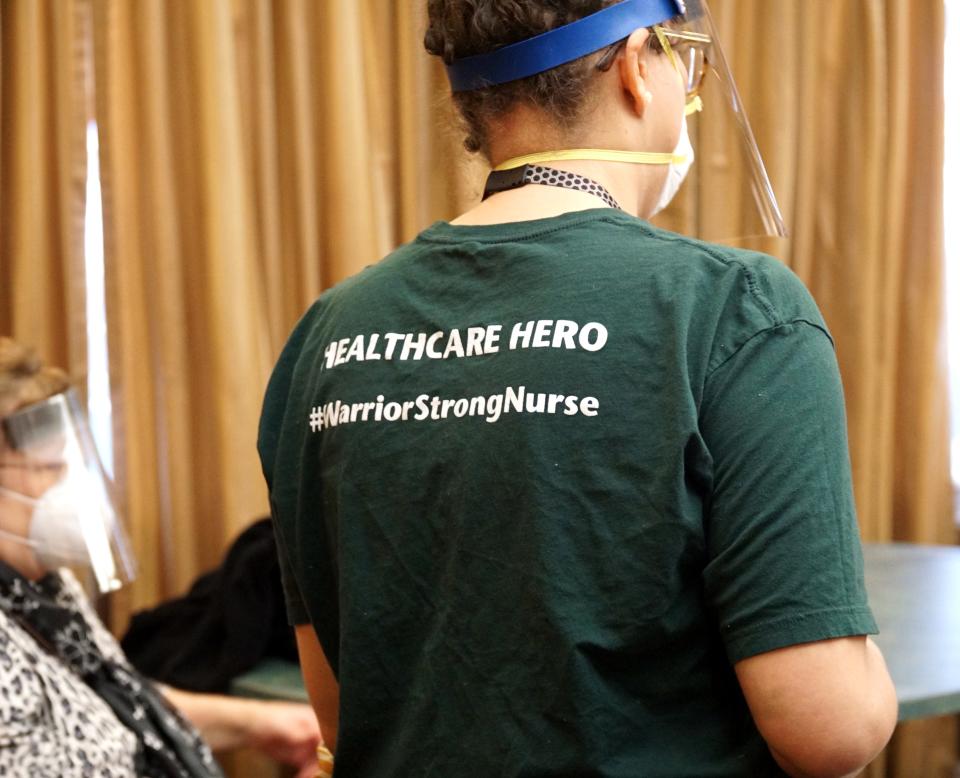I'm the new president of Wayne State. Here's what I've learned about our community | Opinion
A little over three months ago, I joined Wayne State University as its new president. I am so grateful for the warm welcome that I have received from the Detroit community. It is a great American city that I am proud to call my new home.
Throughout my career as a professor, brain researcher and clinician I know firsthand the difference providing access to care and community-oriented research can make, particularly for those underserved.
Founded as a medical college in 1868, Wayne State has always played a vital role in the education and health of Detroiters. During my tenure as president of Wayne State, I believe we can deepen our commitment and impact through innovative partnerships and collective thinking. To further that agenda, I have met with our Wayne State health science leaders and many community partners, and we have already initiated brainstorming towards new initiatives that will advance our shared goal — a healthy, prosperous Detroit community.
Our longstanding commitment and service to our city should not be taken for granted — rather the deep, enduring health impact in the city of our founding, and home for 155 years, should be recognized, supported and celebrated.
Because the work Wayne State does is everywhere, it may be easier to overlook. For example, did you know that 40% of physicians in Michigan received all or a portion of their training through Wayne State? Arriving in Detroit with a fresh set of eyes, here’s what I’ve learned — and why it’s important to our community.
Wayne State students, faculty and staff are dedicated to the university’s mission to making a real and significant impact on the health and well-being of Detroiters and those across the metro area.
This work happens through education in the health science disciplines, health research, partnerships and clinical care and community outreach and service.
Approximately one-third of Wayne State’s 24,000 students study in health-related fields. Much of their training is done through clinical rotations and internships in Detroit hospitals and clinics. As they learn, they also provide important hands-on medical care in our health care systems and improve access to treatments for Detroiters. These students are Detroit’s future physicians, nurses, pharmacists, psychologists, medical technologists and many other health providers.
I still have many places to visit and much to learn, but two examples stand out.
The Taylor Street Primary Care Clinic was created in 2020 after Wayne State conducted a comprehensive community needs assessment of Detroit’s Virginia Park neighborhood that identified large gaps in primary and mental health services availability. Wayne State nursing, medical, pharmacy, dietetic and public health students train in the clinic, which is run by faculty in our College of Nursing.
Over the last three years, more than 5,000 patients have visited the Taylor Street Clinic, many that have no insurance — public or private — to support their care. Integrated in the heart of the neighborhood, this clinic made primary care accessible and available to individuals and families in need who previously were not served.
The Wayne Health Mobile Unit program — born out of the COVID pandemic to provide testing and vaccines to the community — now uses vehicles equipped with medical equipment and staffed by medical professionals to visit underserved Detroit communities, offering screening for diabetes, high cholesterol, kidney disease and high blood pressure. To date, the Mobile Health Unit program has visited more than 3,300 events and provided services to almost 90,000 patients, more than the population of most of our metro communities.

Wayne State’s position as a top-tier urban public research university in the heart of our vibrant city offers opportunities to understand and confront real urban health challenges. Our health faculty, students, researchers and providers are working in churches, recreation centers, grocery stores, community hubs and more to address our many challenges — asthma, preterm birth, opioid addiction and type-1 diabetes in Black youth, to name just a few.
Wayne State’s critical role as an engine of Detroit’s health workforce is real, and our community is healthier and better off because of it.
Kimberly Andrews Espy is president of Wayne State University.
This article originally appeared on Detroit Free Press: Detroit's Wayne State president pens op-ed about university's future

